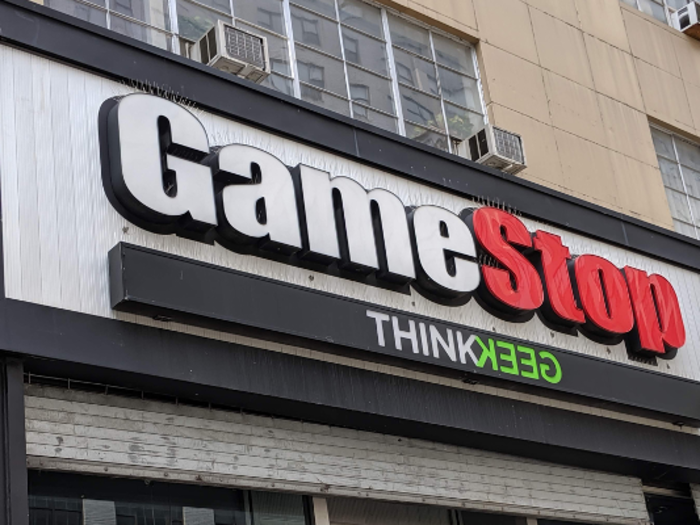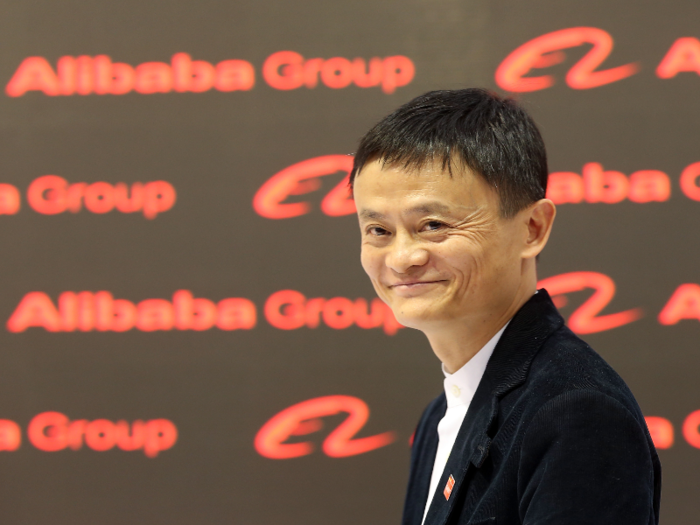- Home
- slideshows
- miscellaneous
- Here are 5 surprising calls by 'Big Short' investor Michael Burry, who just called passive investing a 'bubble'
Here are 5 surprising calls by 'Big Short' investor Michael Burry, who just called passive investing a 'bubble'
Michael Burry called passive investing a "bubble."

Burry says GameStop shares are undervalued.

Burry threw his support behind GameStop in an interview with Barron's last week. He said the ailing video game retailer's balance sheet is "actually in very good shape" and its future cash flow will "justify a much higher share price."
GameStop's cash pile more than doubled year-on-year last quarter to $543 million, while its long-term debt shrunk by 43% to $469 million, its latest earnings show.
Burry told Barron's the next generations of Sony's Playstation and Microsoft's Xbox consoles are likely to have physical disk drives, which would "extend GameStop's life significantly."
While the advent of cloud-gaming services such as Google's Stadia are "creating a perfect storm where things look terrible," he added, "It looks worse than it really is."
Burry recently sent a letter to GameStop's management, revealing Scion has a 3% stake in the company and urging them to spend $240 million on share buybacks.
GameStop's shares soared 18% following Burry's endorsement. However, they've still plummeted 70% this year, wiping about $900 million from the company's market capitalization.
Burry is splashing his cash on water.

"Burry is focusing all his trading on one commodity: water," a caption reads at the end of "The Big Short," just before the credits roll.
The investor has recognized the world's water supply is under pressure and prices are set to rise. Rather than simply buying water sources then flogging the liquid at inflated prices, Burry has taken a different tack.
"What became clear to me is that food is the way to invest in water," Burry told New York magazine in 2015. "Grow food in water-rich areas and transport it for sale in water-poor areas. This is the method for redistributing water that is least contentious, and ultimately it can be profitable, which will ensure that this redistribution is sustainable."
Burry's strategy has led him to invest in water-thirsty crops such as almonds, which require more than a gallon of water each to grow, and look set to profit from soaring demand for plant-based milks.
Burry is bullish on Asian equities.

Burry has shown a growing appetite for Asian stocks.
The investor opened a fund focused on the region last year. Scion Asia had raised $199 million as of this March, SEC filings show. Burry highlighted Japan, along with South Korea and Hong Kong, as "focus countries" in fund documents, according to GuruFocus.
Scion Asset Management's portfolio included $8.5 million worth of stock in Alibaba, SEC filings show, making the Chinese internet retailer one of its largest holdings. It sold a $9 million stake in one of Alibaba's local rivals, JD.com, last quarter.
Burry made a past foray into Asia, but pulled back in 2008 after spotting a chance to cash in on the economic downturn in the US. He closed regional funds with roughly $200 million in assets that had returned between 80% and 116% since he founded them in 2005, according to the Wall Street Journal.
Burry sees value in small-cap stocks.

Burry is investing in small-cap stocks as they've been neglected by money flowing into index funds that track large companies, he told Barron's.
Scion has acquired stakes in several companies with market capitalizations below $1 billion. Its holdings include sporting goods retailer Sportsman's Warehouse and Tailored Brands, owner of Men's Wearhouse, its latest SEC filing shows.
It counted GameStop, real estate investor CorePoint, property developer FivePoint, and pet-health group PetIQ among its investments in the preceding quarter.
However, Burry hasn't abandoned large-cap stocks entirely. Scion held stakes in Disney, Google-owner Alphabet, FedEx, and Western Digital last quarter, SEC filings show.
Popular Right Now
Popular Keywords
Advertisement